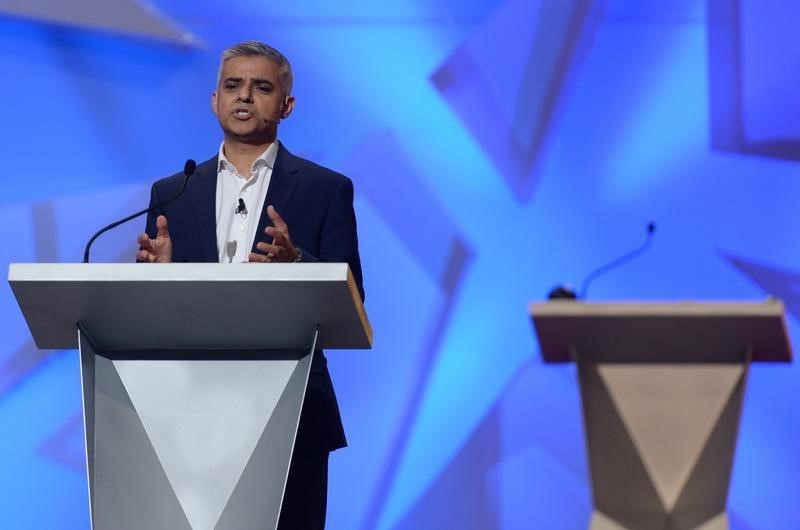By William James
LONDON (Reuters) – London Mayor Sadiq Khan, seeking more powers for the British capital to protect the city after Britons voted to leave the European Union, commissioned a study on Tuesday to draw up a list of devolution demands. The June 23 vote to leave the EU is threatening to send Britain’s $2.4 trillion economy into a recession that would cast a long shadow over London, the center of the country’s prosperity and home to its world-leading financial services industry. Khan, a center-left former Member of Parliament who was elected in May on a pro-business platform, said he wanted more policy tools to make sure he could steer the capital’s economy effectively as Britain negotiates its EU exit. He did not elaborate but a previous study, published in 2013, recommended devolving property taxes and allowing London greater freedom to invest in infrastructure.
“London needs a stronger voice so that we can protect jobs and growth from the economic uncertainty ahead,” Khan said in a statement announcing a new ‘Finance Commission’ tasked with drawing up a “wide-ranging suite of devolution requests”. Khan said he had already held preliminary talks with finance minister Philip Hammond on the subject, and that Hammond had indicated he was open to further devolution for London.
As mayor, Khan already oversees a budget of 17 billion pounds ($22 billion) with a remit that covers housing and transport, but he does not set policy for the financial sector or have full control over taxation, spending and borrowing. “More than ever before, Londoners need their city’s government to be agile and to have the power to use taxation generated locally to promote economic growth,” said Tony Travers an academic who will lead the new finance commission and who chaired the previous study. “Devolution would be good for London and would take pressure off the UK government at a time when it needs all its capacity to make Brexit work as well as possible,” he added.
(Editing by Stephen Addison)
London mayor seeks more powers to protect post-Brexit city

By William James















